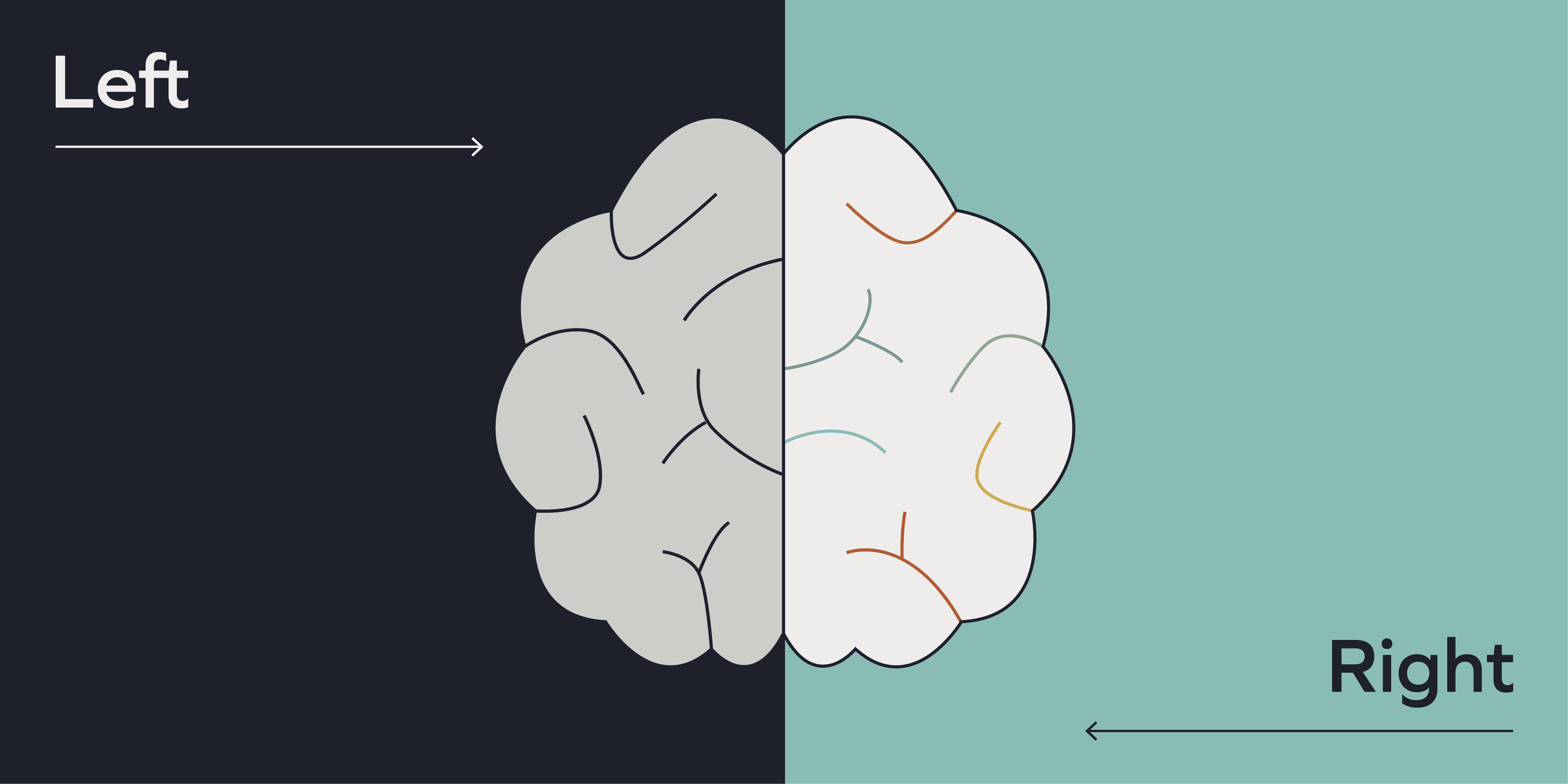How building brand belief can bring long-term B2B success in 2024 and beyond.
13th March 2024 •
13th March 2024 •

A long-term approach to building a genuine, emotional connection between your brand and your customers will deliver more effective marketing, helping you to reach, win and retain more business.
The ever-increasing pressure to deliver immediate leads and quick results has led many B2B marketers to forget about the importance of building a strong brand, one that has the power to positively influence and amplify future success. With soaring costs of digital advertising in 2024 and shrinking marketing budgets, investing in a strong brand is a must, especially if you consider that 95% of your prospects might not be currently in-market for your solution.
Brand is about far more than awareness. Creating trust and belief in your brand shifts your entire proposition from ‘awareness’ to ‘availability’, a point made by Peter Weinberg, Head of Development at The B2B Institute at LinkedIn. In a conversation with Colin Fleming, Senior VP of Global Brands, Events and Customer Marketing at Salesforce he talks about the importance of customers moving away from recognising a brand to considering it for purchase. That’s a shift – in both thinking and action – that many B2B marketers need to make, thinking long term about brand influence rather than just focusing on short-term acquisition.
Long-term thinking and strategy can be a challenge in B2B marketing. You are tasked with generating fast results from marketing strategies, but you need to be able to focus some of your effort and spending on developing brand belief.
As Les Binet and Peter Field say in their book, The Long and the Short of it: “A succession of short-term response-focused campaigns (including promotionally driven ones) will not succeed as strongly over the longer term as a single brand-building campaign designed to achieve year-on-year improvement by business success.”
Successful strategies blend long-term brand building with shorter-term acquisition campaigns.
An interesting report has recently emerged from HockeyStack, a GTM analytics platform for B2B companies, which revealed that it takes on average 700 LinkedIn impressions and 54 touchpoints for a prospect to identify themselves on your website.
The 700 impressions are not coming from one person but rather several people within a company, but these numbers stress the importance of having a well-established brand strategy.
So how do you create a B2B brand that is memorable enough for prospects to easily come back to once they are ready to buy?
“ Many B2B marketers default purely to a rational checklist of practical features, rather than showing how they can address a buyer’s pain point or solve a problem. ”
As B2B marketers, we know that high-level decision making is a blend of rational and emotional pushes and pulls. It’s not just about making people feel good about their decisions – it’s about addressing and supporting the logical and often sensitively balanced factors that affect those decisions.
A great example of this approach is the internal workplace communication tool, Slack. Their marketing strategy emphasises solving human problems and enhancing workplace collaboration, rather than just selling a messaging tool. Their customer stories and testimonials focus on the impact Slack has on teams, fostering a sense of community and belonging.
Of course, we know that emotion contributes greatly to every decision we make, personally and professionally. There’s an argument that emotion is more important in B2B marketing than in B2C because there is more at stake for a B2B buyer and decision maker. In fact, IDC’s research suggests that nearly three-quarters (73%) of B2B buyers now expect a B2C-type experience. Even with this knowledge, many B2B marketers default purely to a rational checklist of practical features, rather than showing how they can address a buyer’s pain point or solve a problem.
For the businesses we work with, a purchase of their product or service will often be a significant decision for their customers. It may involve a substantial budget or be critical to the ongoing operation of the business. It could be replacing a much-loved legacy product or being part of a difficult change programme, which may have a direct effect on the promotion or pay prospects of the buyer involved in or making the decision, (and will need to be completely justifiable to senior leaders).
But let’s not stop here. While many B2B vendors do a great job of helping their prospects rationalise the purchase to the business, there is an opportunity to dig a little deeper, especially at the critical point of conversion.
If you consider the landing pages you build for your campaign, think about the opportunity you get to connect with your visitors as a proposal. This is a 1-to-1 conversation, no one else listens. What are you going to tell them to convince them to try your solution? If you are selling a CRM system, will your solution help them align marketing and sales activities, getting recognition for a job well done from a CEO? Or maybe the Sales Director will appreciate their efforts to increase sales-ready leads and back them up for a well-deserved promotion?
Landing pages are an excellent way to A/B test your messaging and see what resonates. And the best part is, you can get really creative about how you want to come across!
“But how does this look in practice?” you ask. At Torpedo, we can’t get over this extraordinary campaign released recently by intent-data platform, 6Sense. They recently launched the “anti-valentine” campaign, which we found brilliant for several reasons:
And even though you might not be able to engage with 6Sense right now, we bet this campaign will strengthen brand recall.
As you can see in the examples above, even though most B2B purchases being a highly–charged decision, there are a multitude of rational and emotional factors in play, and brands are missing a trick if they undervalue the importance of either of those considerations. Your customer needs to absolutely believe in your brand – in what your company offers, what it delivers, how it looks after customers during the whole process, in its expertise and experience, and in its reliability. They need to trust that you will deliver on your promises – and they need to know that you can meet the particular budgetary, performance, delivery or service demands they have.
Crucially, the B2B decision-making process can often be protracted, so brand is critical to supporting customers through that journey – providing information, confidence and proof points at each stage to make a clear emotional and rational connection with the prospect as they evaluate their options. By building positive associations with your brand, you are helping to guide your prospect to choose your business before a sales conversation even takes place.
Be warned though, building genuine brand belief takes time. We know that people need to see your brand across several touchpoints before they become consciously aware of it. Then they might use that familiarity to investigate how you could work with them, and that’s followed by an increasing ‘likeability’ of the brand which grows into a belief that the brand can deliver for them – rationally as well as emotionally.
“ An intelligent mix of creativity and data will activate your brand in a way that resonates with your audiences. ”
We shouldn’t underestimate the importance that brand experience plays within the psyche of someone who is working through a drawn-out procurement process. It’s about creative and eye-catching storytelling, matched with professional presentation, proof of performance and deliverability, communication and a personal service.
Those principles work no matter what type of business you are – a traditional business or a very progressive and disruptive one. The trick is to humanise your proposition and use creativity to build and communicate the relevant brand story to the right customers.
Just as emotion is an important factor in the buying journey, so is the customer experience. The way your brand presents itself, communicates and backs up its messages is all part of the experience. You need to have a story to tell – a story that makes people sit up and take notice.
An intelligent mix of creativity and data will activate your brand in a way that resonates with your audiences. Creating distinctive campaigns and digital experiences sends the message: “This business can really solve the problem I have” – and makes both the emotional connection and the rational connection, helping your customer make the case for buying from you.
Ultimately, short-term campaigns are far more effective when they form part of a longer-term brand building strategy. We get better results from day-to-day marketing through this application of bigger thinking, and it’s our role as marketers to challenge businesses to think more broadly than just delivering content through a few channels.
In a nutshell, focusing on building brand belief, using creative methods to be seen and get your story across, and ensuring your brand experience is consistent at every touchpoint will result in more effective marketing, thereby increasing your reach and improving your ability to win business.

If you would like to explore how you can build more belief in your brand, let’s connect.
Get in touch.